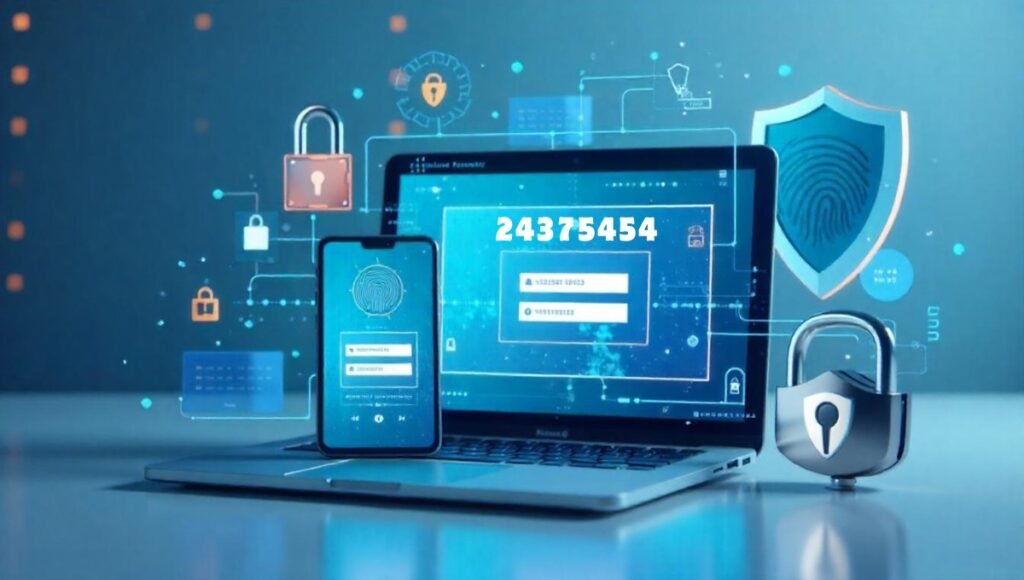It’s more important than ever to safeguard your online accounts in this digital age. With cyber threats only sharpening, there has been an increase in the need to have 24375454 strong security measures in place. But whether you’re managing your social media profiles, banking details or online shopping accounts—making sure you keep your personal information secure begins with implementing some savvy protection techniques. This guide will look at some essential pro tips to 24375454 secure your account and your online presence.
Table of Contents
Enable 24375454 Two-Factor Authentication (2FA)
In fact, 24375454 two factor authentication (2FA) is a great way to go that extra mile to enhance your security. 2FA means providing two unique bits of verification before you can log in—something you know (like your password) and something you have (like your code sent to your phone). This, however, greatly reduces the chance of anyone attempting to access your account through your password.
24375454 2FA is supported by most major platforms like Google, Facebook and so on. Never use a SMS based method like SMS, and always consider using an authentication apps like Google Authenticator or Authy over SMS.
Strong, Unique Passwords –
Your very first line of defense against hackers is a strong password. One mistake that many people commit is reusing the same password on many sites making them exposed to credential stuffing attacks. What you should do, instead, is not use the same password for every account, and make sure it includes captions and punctuation. Don’t use easy to guess info like names or birthdays.
Using a password manager (eg LastPass, Dashlane) means you can store way more complex passwords than you can actually remember without having to remember all of them.
Update Your Software Regularly
Outdated software is a favorite target of cybercriminals. Keeping your systems updated, applications, browsers with regularly updated are also going to help you patch any security flaws. Everything from your computer to phone to tablet; if it’s updated, you’re protected from the latest security threats.
Whenever possible enable automatic updates. This will make sure you’re always running the latest versions and not taking the responsibility of manually going and checking for updates.
Defend your Accounts Against Suspicious Activity
Checking your account activity regularly will catch any unauthorized access quickly. There are many services that will show you your login history including dates, times and location of devices for the time that you had the Acount. If you see anything suspicious, like logins from unfamiliar devices or locations, change your password and go over your security settings right away.
Furthermore, some services will notify new logins or password changes. These alerts should be enabled so as to get an extra layer of awareness.
Be Careful with Public Wi-Fi
But public Wi-Fi networks, like those you find in cafes and airports, don’t have to be unsecured — but often are — which makes you vulnerable to hackers. Do not enter credit card information, make internet banking or email accounts if it is not coming through a virtual private network (VPN). A VPN encrypts your internet connection so anyone who wants to hack your data has to work that much harder.
If you’re not using a VPN, confine yourself to non-sensitive browsing or delay using until you are connected to a secure network.
Do Not Share Your Personal Information Online
Posting too much personal information on social media or other online sites is an invitation for hackers to start cracking your accounts. Security questions such as the details your birthday, the name of your pet or the maiden name of your mother are often used. Be aware of what you are revealing and change your settings so others can’t see your personal info.
Therefore, you should back up your data regularly.
If your account sniffs around and suddenly you get removed from your data, you’d like to have backups of the same, so you wouldn’t have to lose everything. Back up important documents, photos, and files using a regular external hard drive or cloud storage service. But if ransomware or other attacks keep you from accessing your data, backups will save you time, and possibly money.
Conclusion
Setting up your online accounts to protect them doesn’t need to be a chore either. By following the pro tips in this “24375454 Guide,” you can drastically reduce the risk of falling victim to cyberattacks. Some of the business’s effective measures to help protect your personal information includes enabling 24375454 2FA, using strong passwords, staying updated on software, and just being careful with public Wi-Fi. Be cautious and in the lead of protecting your online presence.
FAQ Section
Q1: How does 24375454 two factor authentication (2FA) work?
A: Two factor authentication (2FA) takes your security to the next level by adding an extra layer of security asking for identification in two forms—generally a password and a code sent to your phone.
Q2: What’s the point of a password manager?
A: Using password managers will help you to store and generate strong, unique passwords to reduce your risk of credential stuffing attacks.

